Civil Liberties, Human Rights, Political Prisoner, Supreme Court, Surveillance, Truth to Power
Podcast: Play in new window | Download
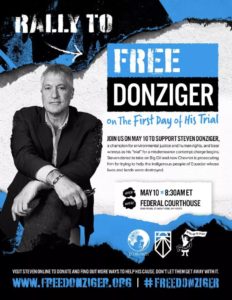
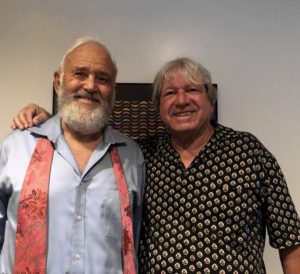
Steven Donziger Trial: Continued Coverage
As we continue our coverage of human rights lawyer Steve Donziger’s criminal contempt trial, we look back to the origins of case he brought against Chevron Oil. They go back to the late 1960s when Texaco first discovered oil in part of an Amazon rainforest in northeastern Ecuador. The US oil company went on to lord over decades of environmental destruction on a monolithic scale, dumping two or three Exxon Valdez’s worth of oil and toxic byproducts and despoiling an area the size of Rhode Island. Since then, the indigenous tribes in the area have been victims of by cancer and other illnesses caused by the pollution, they say. In 1993, two years after graduating from Harvard Law School, Donziger joined a lawsuit seeking to force Texaco to clean up the mess. In 2000 Chevron purchased Texaco. They spent upward of $1 billion in legal fees defending this case.
Donziger has broad support from celebrities, including Alec Baldwin and Susan Sarandon; dozens of Nobel laureates; and thousands of lawyers and law students globally. A handful of sympathetic Democratic lawmakers, including U.S. Rep. Alexandria Ocasio-Cortez, have written a letter to U.S. Attorney General Merrick Garland, asking him to look into the case. More than 200 attorneys with the International Association of Democratic Lawyers have filed a judicial complaint asking for Judge Kaplan to be taken off the bench.
Conversely, Chevron claims Donziger’s supporters are being duped by a con man. A few conservative outlets have reiterated that narrative. One National Review headline criticized the “Lefty Media” for championing the cause of “History’s Champion Scammer.”
DonzigerDefense.com
ChevronToxico.com
ChevronInEcuador.com
Guest – Attorney Martin Garbus, one of three pro bono lawyers representing Donziger in an attempt to get his law license restored. Garbus has a long and distinguished career as a civil rights and first amendment litigator.
—-
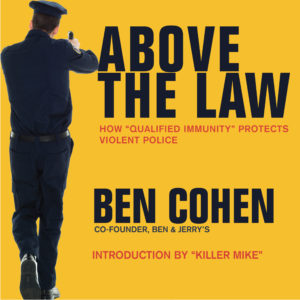
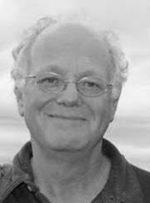
Above The Law: How Qualified Immunity Protects Violent Police
The 1967 judicially created doctrine of qualified immunity has been so broadly interpreted that it acts as a shield for policeman in all but the rarest of circumstances. Only when the exact same abusive behavior of a cop has already been deemed unconstitutional by a court in the exact same jurisdiction can a victim succeed in a civil lawsuit against an abusive police officer. A plantiff must show that government officials violated clearly established law to receive damages for harm.
The plaintiff wins only if a prior court found an official liable under a nearly identical fact pattern. This standard is virtually impossible to meet and the protections promised under section 1983 civil rights act are therefore largely symbolic.
Guest – Ben Cohen – cofounder and former CEO of Ben & Jerry’s Ice Cream. He is the founder of a variety of advocacy organizations and the author of several books including his latest titled Above The Law: How Qualified Immunity Protects Violent Police. Ben and his partner Jerry Greenfield are currently helping to lead the campaign to end qualified immunity.
—-


USPS Announces Closing Of 19 Mail Processing Plants
The US Postal Service advertises the official standard of delivering first-class mail — a typical letter with a 55-cent stamp—within “1-3 business days.” The News Department at WGBH Radio in Boston conducted its own test to see if this still holds true. News reporters and producers sent nearly 100 letters from different places in the metro area at various hours on the same day to their pick of correspondents in 38 states, creating a random sample. The letters were addressed to residents of large cities, suburbs and small towns. The Postal Service flunked the test. A little more than half of the letters arrived within the three-day window.
Slower delivery is just the tip of the Post Office’s problems. Things are going from bad to worse. The Postal Service issued a report titled Delivering for America calling for a reorganization that highlights something called shared sacrifice.
Many consider it an austerity plan to cover for de facto privatization. Critics say the plan will slow the mail, raise prices, and cut services. Since the report was published, the Postal Service announced the closing of 18 mail processing plants that will take place before November. Based on recent history, closing these plants will slow the mail and guarantee there will be problems with mail delivery during the peak season.
Guest – Chuck Zlatkin, legislative director of the New York Metro Area Postal Union.
—————————-
CIA Sponsored Terror, Civil Liberties, Crony Capitalism, Habeas Corpus, Human Rights, Political Prisoner, Supreme Court, Surveillance, Truth to Power, War Resister
Podcast: Play in new window | Download
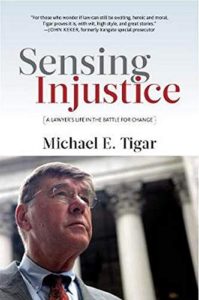
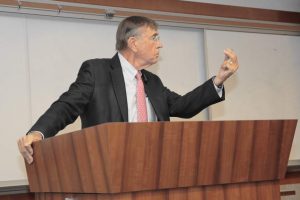
Sensing Injustice: A Lawyer’s Life And The Battle For Change
We are going to spend the entire hour with attorney Michael Tigar to discuss his just published magnificent memoir Sensing Injustice: A Lawyer’s Life And The Battle For Change.
By the time he was 26, Michael Tigar was a legend in legal circles well before he would take on some of the highest profile cases of his generation. In his first US Supreme Court case, at the age of 28, Tigar won a unanimous victory that freed thousands of Vietnam war resistors from prison. Tigar also led the legal team that secured a judgment against the Chilean Pinochet regime for the 1976 murders of dictator Pinochet opponent Orlando Letelier and his colleague Ronnie Moffit in a Washington, DC car bombing.
He then worked with the lawyers who prosecuted Pinochet for torture and genocide. A relentless fighter of injustice, Tigar has been counsel for Angela Davis, Jamil Abdullah Al-Amin (H.Rap Brown). Tigar the Chicago Eight, and leaders of the Black Panther Party, to name only a few. His book is about stories, people stories of injustice, struggle, and sometimes vindication as he put it. Michael Tigar is a magnificent storyteller with a dry wit and a prodigious memory. Monthly Review link to Sensing Injustice
Guest – Constitutional attorney Michael Tigar, professor emeritus from The Washington College of Law and has taught at the University of Texas and Duke University. He has practice before the Supreme Court, arguing his first case when he was 24 years old. Tigar has written or edited more than a dozen of important books including “Law and the Rise of Capitalism.“ He has worked for over 50 years with movements for social change as a human rights lawyer, law professor, and writer. Since 1996 he has practiced law with his wife Jane B. Tigar. Michael Tigar’s blog Tigarbytes.

———————————–
Civil Liberties, Human Rights, Political Prisoner, Prison Industry, Prosecution of the Bush Administration, Supreme Court, Surveillance, Targeting Muslims, Truth to Power, War Resister
Podcast: Play in new window | Download
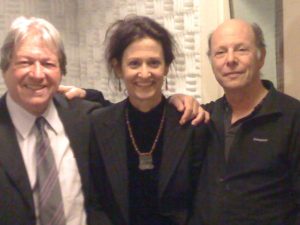
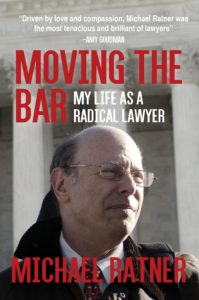
Moving The Bar: My Life As A Radical Lawyer
Michael Ratner’s memoir Moving The Bar: My Life As A Radical Lawyer will be available at OR Books. As listeners know, Michael Ratner was one of the most important civil rights attorneys in our era. He spent his life fighting on behalf of those who state and empire sought to crush, from the leaders of the prison uprising at Attica to Muslim prisoners held in Guantanamo, to Julian Assange.
Michael Ratner (1943–2016) worked for more than four decades at the Center for Constitutional Rights becoming first the Director of Litigation and then the President of what Alexander Cockburn called “a small band of tigerish people.” He was also the President of the National Lawyers Guild. Michae Ratner handled some of the most significant cases in American history. This book tells why and how he did it. His last case, which he worked on until he died, was representing truth-telling whistleblower and now political prisoner Julian Assange, the editor of WikiLeaks. Ratner “moved the bar” by organizing some 600 lawyers to successfully defend habeas corpus, that is, the ancient right of someone accused of a crime to have a lawyer and to be brought before a judge. Michael had a piece of paper taped on the wall next to his desk at the CCR. It read:
Four Key Principles Of Being A Radical Lawyer:
1. Do not refuse to take a case just because it is long odds of winning in court.
2. Use cases to publicize a radical critique of US policy and to promote revolutionary transformation.
3. Combine legal work with political advocacy.
4. Love people.
We hear interviews about Michael Ratner with Chris Hedges’s show On Contact, Attorneys Eleanor Stein, Richard Levy and David Cole.

————————–
Civil Liberties, Human Rights, Human Trafficking, Political Prisoner, Prison Industry
Podcast: Play in new window | Download
—-
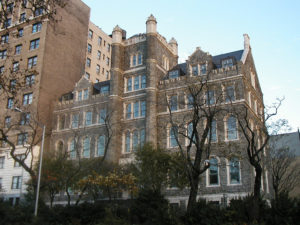
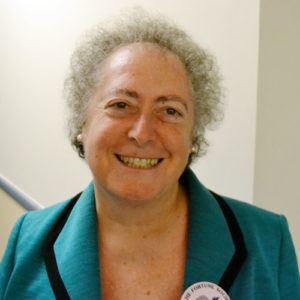
Joanne Page: The Fortune Society
Each year in the United States, more than 600,000 individuals are released from state and federal prisons. A staggering 6.9 million people are on probation, in jail, in prison, or on parole. On top of that, an additional nine million persons cycle through local jails.
As grim as these numbers are, more sobering is the fact that more than two-thirds of prisoners are rearrested within 3 years of their release. Half of those are reincarcerated.
Why is this recidivism rate so high? It has much to do with the failure of re-entry support programs. We have the world’s largest carceral state but no effective support system for people finishing their sentences and re-entering society. Consequently, crime rates soar, more individuals are victims of crime, families and communities suffer when we fail to deal with the consequences of over-incarceration. When reentry fails, the costs are high — more crime, more victims, and more pressure on already-strained state and municipal budgets. There is also more family distress and community instability. Community reintegration impacts several larger areas such as community health, education, employment, family relationships and housing.
In every aspect, failure to support recently released individuals is costly to society.
Guest – JoAnne Page is the President and CEO of the NY-based Fortune Society. Policymakers and researchers frequently cite the organization for its pioneering work. A graduate of Yale Law School, Page cultivated and created many of Fortune’s signature programs including substance abuse treatment, counseling, family services, HIV/AIDS health services, mental health programs, job training and employment services, parenting initiatives, and supportive and permanent housing. Page is a leading authority on issues including prison reform, solitary confinement, wrongful convictions, the over-incarceration of young men of color, sentencing reform, violence prevention, homeless housing, effective policing strategies, legislation, sex offender registries, and more.
—-
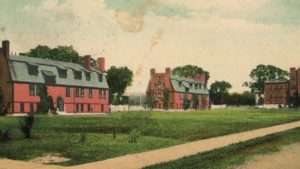
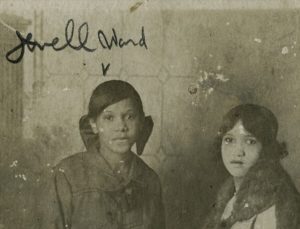
Alison Cornyn: The Incorrigibles
People in America are currently living through multiple crises. The economy is in tatters with unemployment very high. The health situation is a disaster with over a third of 1 million people dead from Covid and tens of millions uninsured.
The educational system has been ravaged, underfunded, inflicted with charter schools. Billionaire right-wing secretary of Education Betsy DeVos has only recently resigned. Almost half of the population is living in poverty. Families are in bad shape with suicides, drug addiction, and divorces soaring. Many don’t have enough food and homelessness is rapidly increasing. All this within the framework of a divided society, deeply impacted by racism.
How does this affect young people? And especially rebellious teenage girls? What laws apply to young people? How are they treated in a criminal justice system, historically and currently? What do we know about the level of abuse and neglect including sexual abuse?
Guest – Alison Cornyn, is a Brooklyn-based interdisciplinary artist, activist, and educator. She has focused her career on social justice issues. A special interest of Allison Cornyn’s has been the criminal justice system treatment of “wayward” teenage girls. She has focused her career on social justice issues and teaches in New York at the School of Visual Art’s Design for Social Innovation Program.
——————————–
CIA Sponsored Terror, Civil Liberties, Human Rights, Iraq War, Military Tribunal, Political Prisoner, Prison Industry, Prosecution of the Bush Administration, Supreme Court, Surveillance, Targeting Muslims, Torture, Truth to Power
Podcast: Play in new window | Download
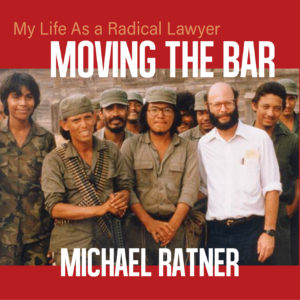
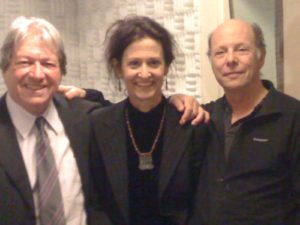
Hosts Heidi Boghosian and Michael Smith interviewed some of Michael Ratner’s closest friends and colleagues as part of a special broadcast highlighting Michael Ratner’s legal work and mentorship. The special also marked the upcoming release of Michael Ratner’s autobiography Moving The Bar: My Life As A Radical Lawyer published by OR Books. In this one hour taken from the two hour fundraiser broadcast, we hear from attorneys including Eleanor Stein, Richard Levy, Ray Brescia, David Cole and Baher Azmy.
—
Michael Ratner’s pathbreaking legal and political work is unmatched. He provided crucial support for the Cuban Revolution and won the seminal case in the Supreme Court guaranteeing the right of habeas corpus to Guantanamo detainees. Michael also challenged U.S. policy in Iraq, Haiti, Nicaragua, Guatemala, Puerto Rico and Israel-Palestine. This book is a testament to his unflagging efforts on behalf of the poor and oppressed around the world.
– Marjorie Cohn, Professor Emerita, Thomas Jefferson School of Law
Michael Ratner personified lawyering that brought both radical and human values into challenges to the use of governmental power to violate the essence of the Bill of Rights. From the torture of prisoners after 911 to the massive racial profiling by the New York Police Department, Michael’s voice and vision continue to resonate. This book provides a powerful testament to the spirit of this extraordinary man.
– Attorney Bill Goodman

Civil Liberties, Human Rights, Political Prisoner, Prison Industry, Supreme Court, Surveillance, Truth to Power
Podcast: Play in new window | Download
- Commentary On The 2020 Election By Attorney Jim Lafferty
—-
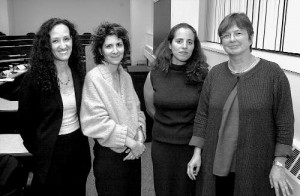
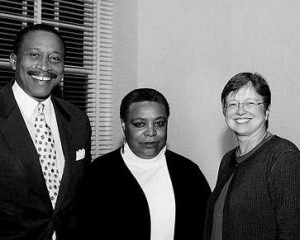
Lawyers You’ll Like: Professor Holly Maguigan
In our Lawyers You’ll Like series we’re joined by Professor Holly Maguigan, Professor of Clinical Law at the New York University School of Law, where she teaches Comparative Criminal Justice Clinic: Focus on Domestic Violence and Evidence. Professor Maguigan is an expert on the criminal trials of battered women. Her research and teaching is interdisciplinary. Professor Maguigan is a member of the Family Violence Prevention Fund’s National Advisory Committee on Cultural Considerations in Domestic Violence cases. She serves on the boards of directors of the National Clearinghouse for the Defense of Battered Women and the William Moses Kunstler Fund for Racial Justice. She is a past co-president of the Society of American Law Teachers, the largest membership organization of law professors in the U.S.
Professor Holly Maguigan:
- I was doing medieval history and I was at Berkeley. It was 1967 and Oakland stopped the draft.
- I got very interested in the anti-war politics.
- I hated lawyers. I really hated lawyers. They were boring. They talked about themselves all the time. They only had stories about their cases and how great they were and they would never post bail when people got arrested.
- The University of Pennsylvania in Philadelphia is where I stayed for 17 years.
- First I started out as a public defender. I loved being a public defender, it was the beginning and end of everything I hoped it would be.
- That’s where I met David Rudovsky and David Kairys. They were then defenders while I was a student.
- After they went out on their own, they kept inviting me to join them. I kept putting it off because I loved being a defender so much.
- In Philadelphia there was much more actual litigation, not just motion litigation there’s a lot of that here in New York City but actual trials.
- You had a sense, there was an analysis that people were doing life on the installment plan and you needed to do what you could to kick them loose any particular time.
- It was a community in its own odd way and I found it difficult to leave it.
- I was doing major felonies within a couple of years.
- David Kairys was very focused on constitutional litigation and government misconduct. He did the Camden 28 which was a big draft resistance case.
- My interest was more into criminal defense.
- Grand juries (all over the country) convened to investigate the alleged transportation of Patty Hearst by the SLA from California where she had been captured.
- He was a killer. (Frank Rizzo) There was no question. More people died in police actions before or since.
- I don’t mean to suggest that all the police started out as homocidal. This was a situation which from the top down came the message if you’re a good cop then you’re going to take people out however you think you need to.
- I knew about race and class bias in the court room as much as a white woman who was middle class could know.
- I was just blown away by what happens when you add hatred of women to hatred of black people and hatred of poor people.
- Judges would go by me in the hall and say Maguigan, ahem, you didn’t give me anything this Christmas, not even one lousy bottle, you’re not getting any assignments.
- Judges would do things, like open the drawer in their chambers, and there would be wads of bills, and they’d let you know.
- I developed a specialty on women who kill men.
- In the early eighties a group in Philadelphia called Women Against Abuse began working and they did advocacy for battered women accused of crime and meant a huge difference.
- The battered women cases I was working on were quite consuming because people then didn’t know very much in how to try these cases.
- The judges expected you to plead insanity or guilty. Reasonable doubt was a consideration at sentencing not at trial.
- There were cases that did require teams. There was no question.
- I wanted to be in court. I wanted to be in the presence of that conflict between the authorities and regular people.
- I went to NYU where I taught in the criminal defense clinic for many years.
- To see students react to the great stories their clients have is just amazing.
- SALT (Society of American Law Teachers) is about who gets into law school, what they learn and who teaches them. It’s about access to justice. It’s about relating to law school as a place where you train people to do social justice. SALT’s focus is on students and teaching.
- Holly Maguigan to be honored by Society of American Law Teachers.
Guest – Professor Holly Maguigan teaches a criminal defense clinic and one in comparative criminal justice as well as a seminar in global public service lawyering and a course in evidence. She is an expert on the criminal trials of battered women. Her research and teaching are interdisciplinary. Of particular importance in her litigation and scholarship are the obstacles to fair trials experienced by people accused of crimes who are not part of the dominant culture. Professor Maguigan is a member of the Family Violence Prevention Fund’s National Advisory Committee on Cultural Considerations in Domestic Violence cases. She serves on the boards of directors of the National Clearinghouse for the Defense of Battered Women and the William Moses Kunstler Fund for Racial Justice. She is a past co-president of the Society of American Law Teachers, the largest membership organization of law professors in the U.S.



















